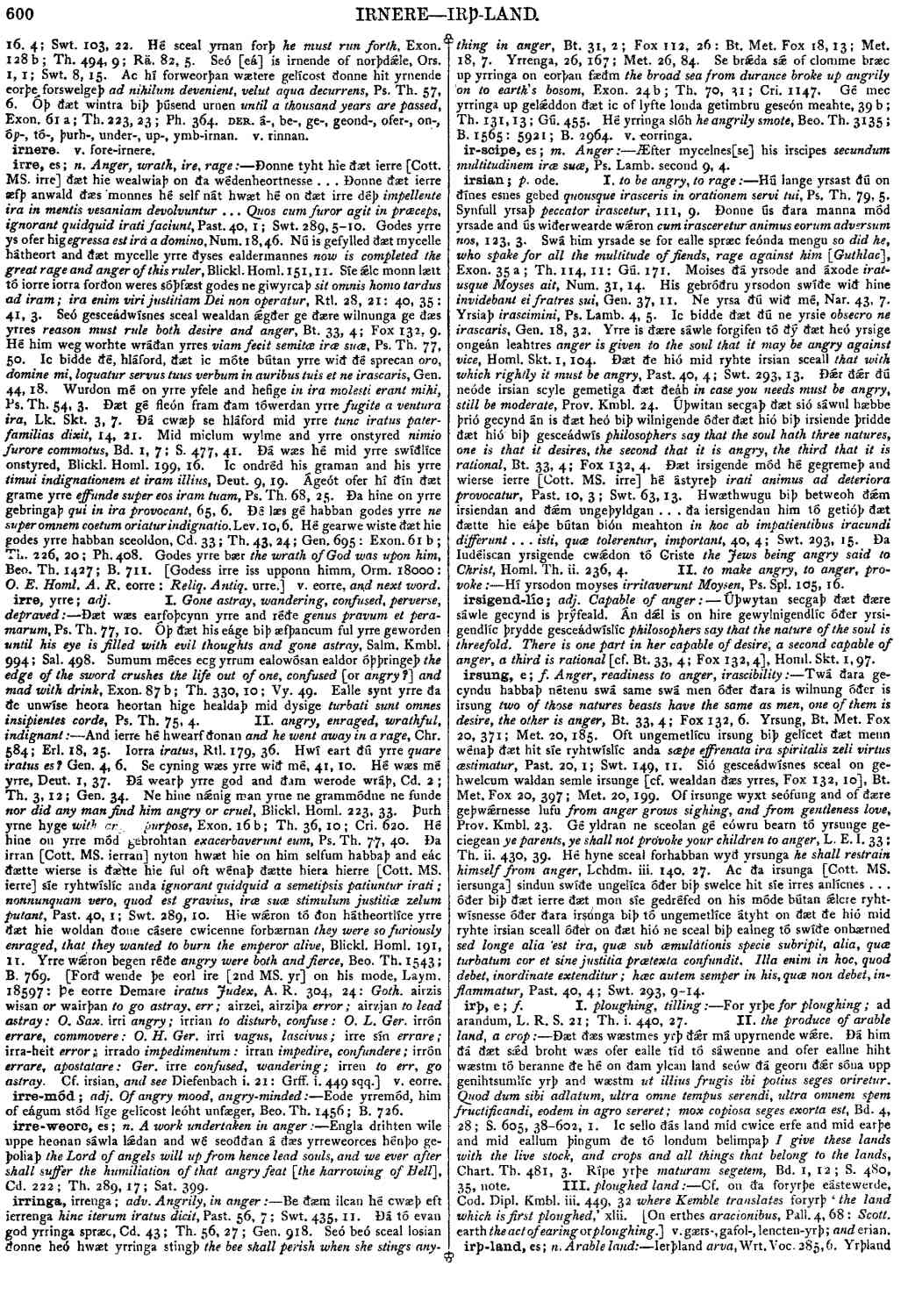irþ
- noun [ feminine ]
-
For yrþe
for ploughing;
ad arandum,
- L. R. S. 21 ;
- Th. i. 440, 27.
-
Ðæt ðæs wæstmes yrþ ðǽr má upyrnende wǽre. Ðá him ðá ðæt sǽd broht wæs ofer ealle tíd tó sáwenne and ofer eallne hiht wæstm tó beranne ðe hé on ðam ylcan land seów ðá georn ðǽr sóna upp genihtsumlíc yrþ and wæstm
ut illius frugis ibi potius seges oriretur. Quod dum sibi adlatum, ultra omne tempus serendi, ultra omnem spem fructificandi, eodem in agro sereret; mox copiosa seges exorta est,
- Bd. 4, 28 ;
- S. 605, 38-602, 1 .
-
Ic sello ðás land mid cwice erfe and mid earþe and mid eallum þingum ðe tó londum belimpaþ
I give these lands with the live stock, and crops and all things that belong to the lands,
- Chart. Th. 481, 3.
-
Rípe yrþe
maturam segetem,
- Bd. 1, 12 ;
- S. 480, 35, note .
-
Cf. on ða foryrþe eástewerde,
- Cod. Dipl. Kmbl. iii. 449, 32
foryrþ
'the land which is first ploughed,'
- xlii.
Bosworth, Joseph. “irþ.” In An Anglo-Saxon Dictionary Online, edited by Thomas Northcote Toller, Christ Sean, and Ondřej Tichy. Prague: Faculty of Arts, Charles University, 2014. https://bosworthtoller.com/20797.
Checked: 1